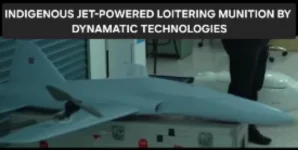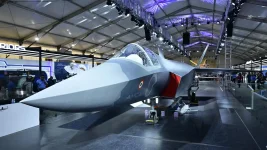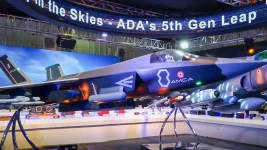- Views: 2K
- Replies: 9
In a notable development within India's indigenous Tejas Light Combat Aircraft (LCA) supply chain, Dynamatic Technologies has subcontracted the manufacturing of composite components for the aircraft's front fuselage to Azista Composites.
This decision, confirmed in late March 2025, marks a strategic move by Dynamatic, a major manufacturer of Tejas airframe structures, acknowledging its current lack of in-house facilities for producing specialised composite parts.
Bengaluru-based Dynamatic Technologies has been a significant partner in the Tejas program, supplying key metallic assemblies like the front fuselage structure, wings, and control surfaces to Hindustan Aeronautics Limited (HAL), the primary integrator of the aircraft.
The company has already delivered components for over 20 Tejas Mk1 aircraft and is actively increasing production capacity to fulfil the large 2021 order for 83 LCA Mk1A jets. However, the growing requirement for advanced composite materials in aircraft like the Tejas highlighted a gap in Dynamatic's manufacturing expertise, which is primarily focused on metal fabrication.
To bridge this gap, Dynamatic has turned to Azista Composites, a Hyderabad-based company specialising in advanced composite materials manufacturing. As a division of Azista Industries, Azista Composites has developed expertise in producing lightweight yet strong composite parts crucial for modern aerospace, defence, and industrial needs. By partnering with Azista for the front fuselage composites, Dynamatic ensures the Tejas program receives high-quality components using the latest material technology without delays.
The front section of the Tejas aircraft is vital, containing the pilot's cockpit, radar equipment, and essential electronic systems (avionics). Using composite materials, such as carbon-fibre reinforced polymers, in this area helps reduce the aircraft's overall weight and improves its flight performance. These modern materials provide a better strength-to-weight ratio compared to conventional metals like aluminium alloys and can also contribute to the aircraft's stealth capabilities by reducing its visibility to radar.
The increased use of composites in the upgraded LCA Mk1A version reflects ongoing efforts to enhance the aircraft's efficiency and address earlier feedback regarding its weight.
Dynamatic's choice to outsource this specific work demonstrates a practical recognition of its current capabilities. While the company has proven expertise in high-precision metal machining and assembly, as seen in its contributions to the Sukhoi Su-30 MKI program and components for Boeing's P-8 maritime patrol aircraft, it has not yet established the specialised infrastructure or workforce required for composite manufacturing.
This process involves distinct techniques like curing materials under pressure in autoclaves and precise layering (layup) methods. Instead of undertaking the significant investment to build this capability internally at present, Dynamatic is utilising Azista's existing proficiency.
Azista Composites brings considerable experience to this partnership, having supplied composite components for various Indian defence projects. The company possesses comprehensive capabilities, including design, development, and manufacturing of aerospace-grade composite parts at its facility in Hyderabad, which is equipped with specialised machinery like autoclaves and computer-controlled cutting systems.
This collaboration not only supports the Tejas LCA program but also highlights Azista's increasing importance in India's aerospace manufacturing sector, aligning with the national "Make in India" initiative aimed at boosting indigenous defence production.
However, some industry analysts view Dynamatic's reliance on outsourcing for composites as a potential long-term challenge. The lack of integrated composite manufacturing capabilities could affect its competitiveness as future Indian aircraft programs, such as the planned LCA Mk2 and the advanced fifth-generation AMCA (Advanced Medium Combat Aircraft), are expected to incorporate even larger amounts of composite materials in their designs.
Dynamatic may need to consider developing these capabilities to maintain its position as a leading supplier in India's evolving aerospace landscape.



